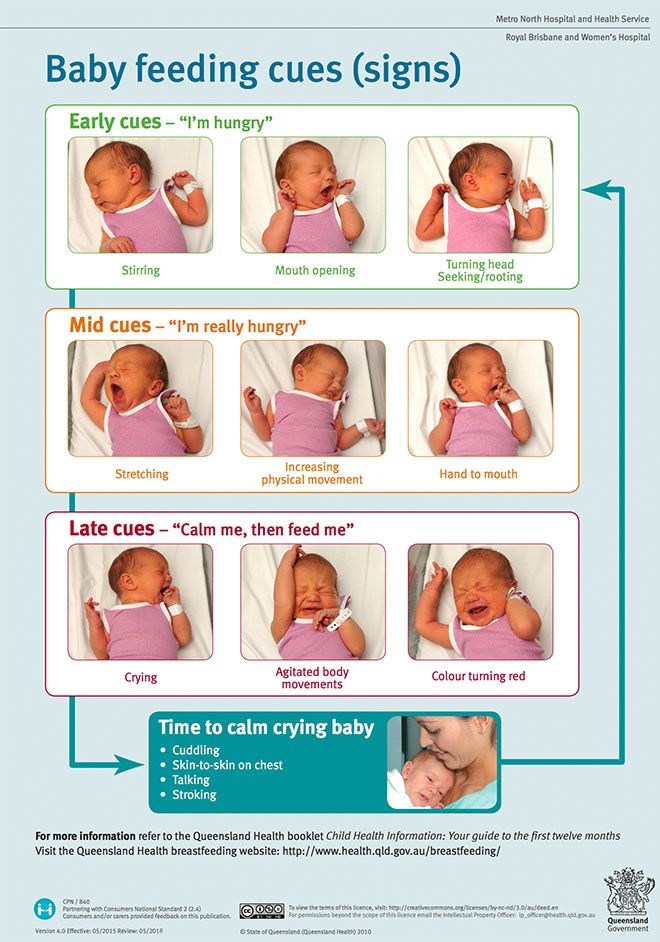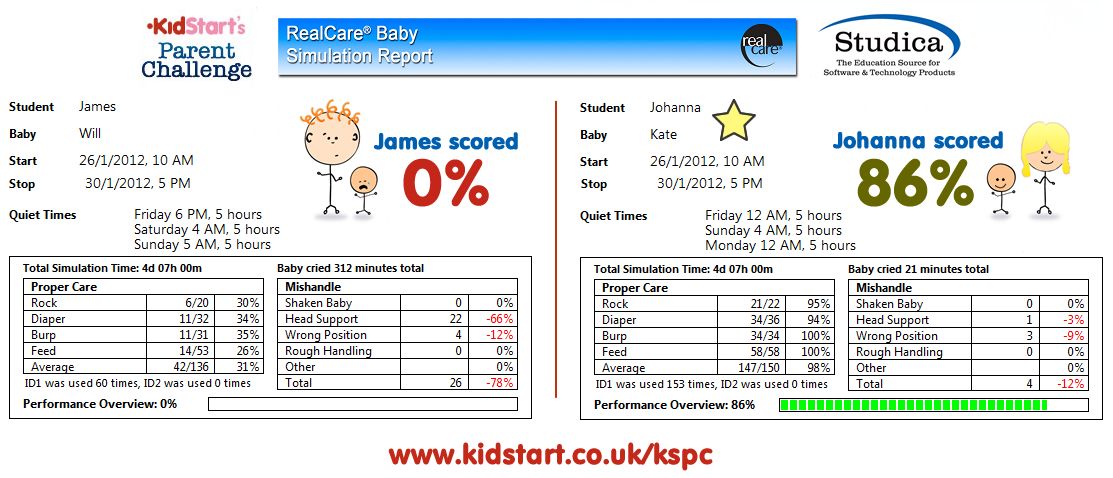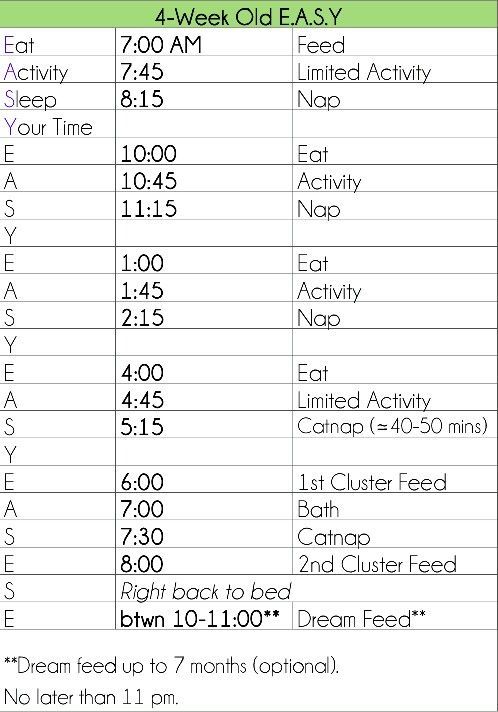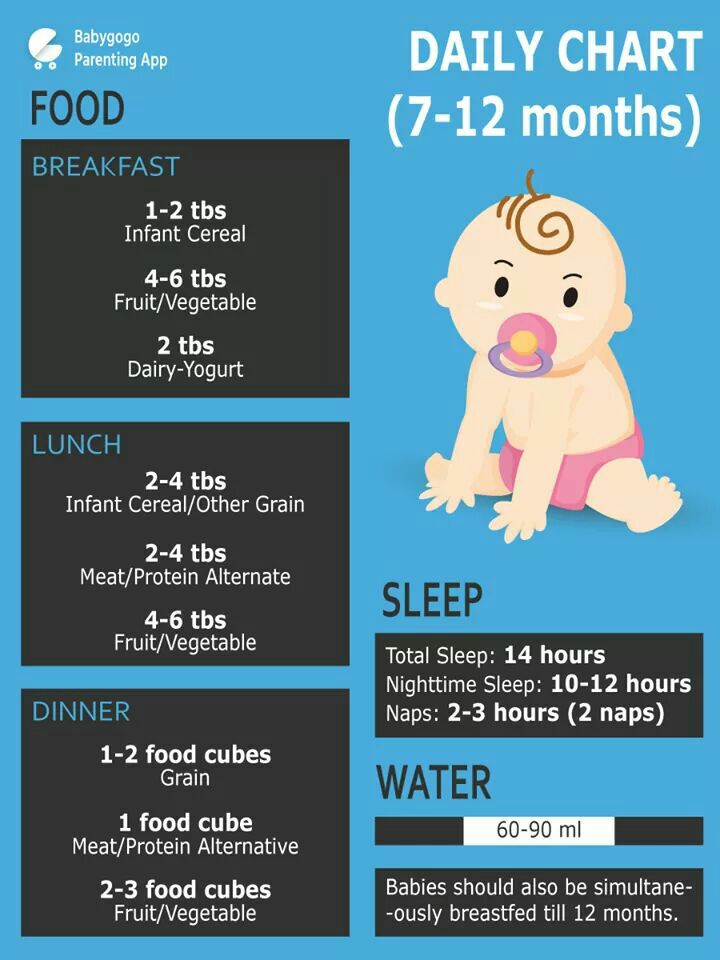Real care baby feeding time
Tricks on Real Care Baby II
MISTY BARTON
CLASS
... moodboard/moodboard/Getty Images
The Real Care Baby II is a sophisticated simulation module in the Baby Think It Over Program. It requires students to care for the baby simulation doll over the weekend and keep a journal of their actions with it. Students get limited instructions going into the project. Knowing what teachers do about the baby’s demands, and the computer programming which controls it, can make the difference between a passing and failing grade.
Explore this article
- Timing Out Care Events
- Emergency Settings
- Order of Care
- Abuse
1 Timing Out Care Events
Student care instructions claim the baby’s cries are “random” and the care schedule cannot be predicted. In truth, the baby is powered by a sophisticated computer program with a set schedule. The trick to anticipating care is determining which of the 15 possible settings your baby is programmed to. Easy settings have nine to 15 minutes between care events. The care events take place every two to 14 minutes on medium settings, and one to eight minutes on hard settings. Track the amount of time between cries to determine the average time between demands for your baby.
2 Emergency Settings
If you know of an upcoming obstacle that will keep you from tending to the baby, ask your teacher in advance for a “quiet period.” Babies can be programmed with up to three quiet periods during which it sleeps and does not demand care. If an emergency occurs after the simulation begins, the student can end the project rather than trying to continue the project at risk of failure. There is an emergency shut off directly below the "Real Care Baby II" label on the doll's back, just above the contact point. Use a small piece of wire or the end of a pencil to push the button.
3 Order of Care
Students must care for the baby when it cries. The basic instructions say to pass the large charm on the ID bracelet over one of the baby’s contact points. When it chimes, you use trial and error to work through all the possible care scenarios until the crying stops. The trick is to follow a basic hierarchy of needs, based on the care you have already provided. You should feed, burp, change and rock the baby in that order without repeating the last care act. If what you are doing does not stop the crying after 10 seconds, change tactics. If nothing else calms the baby, it needs to be comforted more. Rock the baby until it begins to make breathing sounds and continue until it coos.
When it chimes, you use trial and error to work through all the possible care scenarios until the crying stops. The trick is to follow a basic hierarchy of needs, based on the care you have already provided. You should feed, burp, change and rock the baby in that order without repeating the last care act. If what you are doing does not stop the crying after 10 seconds, change tactics. If nothing else calms the baby, it needs to be comforted more. Rock the baby until it begins to make breathing sounds and continue until it coos.
4 Abuse
If the Real Care Baby has been handled roughly, shaken or improperly held, it could record an "abuse" and will need to be rocked until it stops crying. This can take several minutes. Also, if a baby stops feeding but does not coo, a mishandling has been recorded during the feeding. The baby will store up to 49 abuse records, so they're expected. Acknowledge every abuse in your journal, and provide a detailed and legitimate reason for why the abuse occurred. Teachers will take into consideration the circumstances surrounding the record, and a reasonable explanation can save points on your grade.
Teachers will take into consideration the circumstances surrounding the record, and a reasonable explanation can save points on your grade.
About the Author
Misty Barton has been working in the fields of composition and journalism for over 10 years. She has a Bachelor of Science in English education and a Master of Arts in English and composition. She has written for various online publications including a blog that specifically addresses the concerns of work-at-home mothers.
Related Articles
Virtual Know How - RealCare Infant Simulators
RealCare 3 Infant Simulators
Give your students the most realistic simulated parenting experience available.
RealCare Baby® 3 is the world’s most advanced infant simulator. Educators around the world use this unique learning aid to teach early childhood, parenting, infant health lessons, and sex education.
This smart baby adds meaning and accountability by using wireless programming to track and report on caregiver behaviors. Tracked behaviors include care events, mishandling actions, time in a car seat as well as clothing changes. Baby includes four sets of curriculum and activities to help instructors create relevant and career-driven learning experiences.
Tracked behaviors include care events, mishandling actions, time in a car seat as well as clothing changes. Baby includes four sets of curriculum and activities to help instructors create relevant and career-driven learning experiences.
Click here to see the nationalities we have available.
The RealCare Baby 3 Infant Simulator
Experience the life-changing reality of caring for an infant.
Included Curriculum:
Our RealCare curriculum includes four sections:
- Basic Infant Care covers child safety, emergency procedures, child abuse prevention and infant/toddler development.

- A Guide to Parenting Skills for Life
- Life Skills and Healthy Choices for Middle School Students
- Healthy Choices: Relationships, Sexuality and Family Planning
Check out the great savings we offer on our simulator packages below or call us on (02) 4930-1090 for more information or request a quote.
For Pricing Download our lastest Catalogue HERE
Shop online for RealCare Accessories HERE
Check out our RealCare infant simulator packages
Single & Double Baby Packs
- Total Control Pack
- Additional Pack
- Double Packs
Three Simulator Packages
- Basic Pack
- Premium Pack
- Premium Plus Pack
Five Simulator Packages
- Basic Pack
- Premium Pack
- Premium Plus Pack
Ten Simulator Packages
- Basic Pack
- Premium Pack
- Premium Plus Pack
CLICK HERE to calculate how many RealCare infant simulators you might need.

Please Note: This link may take around 20 seconds to load.
Check out our entire range of hands-on learning simulators and models
- RealCare Simulators
- Pregnancy & Childbirth
- Medical & Nursing
- Agriculture
- Pregnancy Profile
- Foetal Development Kit
- Pregnancy Torso
- Twin Pregnancy Model Set
- Birth Model Set
- Human Reproductive Systems Kit
- RealCare Infant Simulators
- Special Needs Simulators
- Single & Additional Simulators
- 3 Simulator Packs
- 5 Simulator Packs
- 10 Simulator Packs
- ECG Simulator
- Blood Pressure Simulator
- Auscultation Simulator
- Injection and Catheterisation Training
- Geratric Care
- Agricultural Skills Training
- Agricultural Animal Models
- Agricultural Plant Models
Ways to find out more
Like more information
Knowing where to start can be a bit daunting. That's where we can help. If you would like a hand please click on the button, fill in your details and we'll get into action
That's where we can help. If you would like a hand please click on the button, fill in your details and we'll get into action
Support
- Free On-Line Webinar
- RealCare Self-Service Centre
- Book Support Call
We acknowledge the Traditional Owners of the lands of this Nation where our business operates. We pay our respects to Elders past, present and emerging. We celebrate the stories, culture and traditions of Aboriginal and Torres Strait Islander Elders of all communities who also work and live on this land.
© 2022 Virtual Know How
The prosecutor explains - Prosecutor's Office of the Perm Territory
nine0003 Prosecutor explains
- November 19, 2020, 02:10
Is an employer required to give a working mother time to feed her child if she is on parental leave and does not work full time?
Text
Share
Many employers assume that if the mother of a child under one and a half years old goes to work part-time and is on parental leave, they should not give her nursing breaks. nine0005
nine0005
In accordance with Article 258 of the Labor Code of the Russian Federation, working women with children under the age of one and a half years are provided, in addition to a break for rest and food, additional breaks for feeding the child (children) at least every three hours, lasting at least 30 minutes each .
If a working woman has two or more children under the age of one and a half years, the duration of a break for feeding is set at least one hour. nine0005
At the request of a woman, breaks for feeding the child (children) are added to the break for rest and nutrition, or in a summarized form are transferred both to the beginning and to the end of the working day (work shift) with a corresponding reduction in it (her).
Breaks for feeding the child (children) are included in working hours and are payable in the amount of average earnings.
Thus, it does not matter whether the mother went to work full-time/part-time, whether she is on parental leave, and it does not matter the type of feeding (breastfeeding or not), a break for feeding must be provided . nine0005
nine0005
(prepared by Zh.S. Burkova, Senior Assistant Prosecutor of the Yusvinsky District)
Is an employer obliged to provide a working mother with time to feed her child if she is on parental leave and does not work full time?
Many employers assume that if the mother of a child under one and a half years old goes to work part-time and is on parental leave, they should not give her nursing breaks. nine0005
In accordance with Article 258 of the Labor Code of the Russian Federation, working women with children under the age of one and a half years are provided, in addition to a break for rest and food, additional breaks for feeding the child (children) at least every three hours, lasting at least 30 minutes each .
If a working woman has two or more children under the age of one and a half years, the duration of a break for feeding is set at least one hour. nine0005
At the request of a woman, breaks for feeding the child (children) are added to the break for rest and nutrition, or in a summarized form are transferred both to the beginning and to the end of the working day (work shift) with a corresponding reduction in it (her).
Breaks for feeding the child (children) are included in working hours and are payable in the amount of average earnings.
Thus, it does not matter whether the mother went to work full-time/part-time, whether she is on parental leave, and it does not matter the type of feeding (breastfeeding or not), a break for feeding must be provided . nine0005
(prepared by Zh.S. Burkova, Senior Assistant Prosecutor of the Yusvinsky District)
How to take care of yourself when the apocalypse is around - SKB Kontur
November 13, 2020
Soon a year, as we all live in extreme stress. In the fall, due to the pandemic, many went away again. Someone was forced to look for a new job, someone - a part-time job. And the daily statistics are horrific. How to support yourself in order to maintain efficiency and peace of mind? Let's reflect on the everyday plane, without going into the psychological jungle. nine0057
Anna Mukhaeva
- Self-care is not selfishness
- How it works: 8 tips
- Do not help out of a sense of duty
- Stop aggression against you
- Don't get infected by other people's feelings
- Give yourself an informational detox
- Explain that you are unavailable on weekends
- Don't let your plans for the day be ruined
- When you get a call, let them know how long you can talk
- Find time for yourself
Self-care is not selfishness
Do you remember the flight attendant's instruction "Put the mask on yourself first, then the child"? This is a good metaphor for a productive and evolutionarily justified life strategy. Those close to us depend on us - on our state of health, energy and presence of mind. So our vitality is not a luxury, but a survival resource for the whole family.
Those close to us depend on us - on our state of health, energy and presence of mind. So our vitality is not a luxury, but a survival resource for the whole family.
But taking care of yourself is not a tube of cream between RSV and 6-personal income tax (although this too). In the flow of affairs, we often forget that we are not only in control of a 15-minute tea break - our whole life is in our power, we and only we can make it a little better or worse. nine0005
To make this phrase stop being a slogan and become a tool, remember what your "I" is. What exactly is yours and no one else's. These are the areas where you can take care of yourself.
How can I take care of myself
| What exactly is mine | What can I do to feel better here |
|---|---|
| Body, health | I don't work more than 8 hours a day, and at lunchtime I go outside for 15 minutes. I can’t stand illness on my legs and let myself rest, even if I know that I will earn less because of this. nine0114 nine0114 |
| My appearance | I myself choose whether to wear makeup or not, wear heels or sneakers, my mother's earrings or piercings. |
| Sleep | I sleep at least 8 hours. I don’t answer letters at work in the evening and I don’t receive guests on weekdays, even if it’s my mother-in-law. I bought an anatomical pillow to get enough sleep. |
| Time | I know when I am productive and how much time I need for what task. Therefore, I do not allow colleagues to distract me, but I book time on the calendar for voluminous tasks. nine0114 |
| My pace of life | Someone manages to teach French, and help a child with lessons, and do yoga. I don't have time, and that's okay. This is my pace. |
| My feelings | It depends on me whether I will accumulate resentment and anger or say what upsets me and try to change the situation. |
| My professionalism | Others may not always understand what my job is, but I know my qualifications, I remember the situations I was able to get out of with honor, and I appreciate my professional background. nine0114 nine0114 |
| My home | It's up to me to decide whether it will be a boudoir, an artist's shelter, or a flower shop. I myself know what I need for comfort and how often I need to clean. I accept advice only on the Sber card. |
Everyone can have their own table. Make one on the last page of your diary and check back when you feel cornered.
How it works: 8 tips
Do not help out of a sense of duty
We all value relationships with relatives and friends, but sometimes for the sake of these very relationships we infringe on ourselves and spend time not the way we would like. We go to the country house to the mother-in-law instead of going to the cinema with the children. We rent zeros for our sister's IP instead of sleeping. We glue wallpaper for adult children instead of sticking it for ourselves.
Ask yourself if you really want to help a friend or relative, or if you're just afraid of being hurt by rejection. If you want, it's all right, it's your choice. And if not, try to find a soft form to refuse. The form is important: not the refusal itself can offend, but a dismissive attitude. nine0005
If you want, it's all right, it's your choice. And if not, try to find a soft form to refuse. The form is important: not the refusal itself can offend, but a dismissive attitude. nine0005
The algorithm is as follows:
- Recognize the need and emotions of the interlocutor.
- Reject.
- Suggest another option.
| Aggressive failure | Soft rejection |
|---|---|
| I have nothing else to do but go to your garden. We actually have our own business, | I know you're counting on me. But today we have other plans. I'm sorry it happened. Maybe next weekend. nine0005 |
| Actually, this is your business. When you registered an IP, didn’t you know that you would have to submit reports? Well, hand it over yourself, what do I have to do with it? | I see that you need help, but during the reporting period I have a lot of my own work. |
Stop aggression against you
We distinguish and resist overt aggression. But when a friend says that a new dress makes you fat, and the mother-in-law keeps asking when for the third one, this is also aggression.
You cannot dictate to another person how to behave, but you can say that you are uncomfortable and stop communication if you are not heard. There are soft and rather hard forms:
"I'm not ready to continue this conversation."
nine0002 "I'm not ready to discuss this topic.""I'm not ready to talk about this topic in that tone."
"I see this situation differently."
"Opinions are different."
“You tell very interesting things, so sorry that I have to leave. Thanks for communication".
"I understand you, your feelings, but let's talk later, with a clear head.
"
Do not get infected by other people's feelings
A gloomy colleague, a panicked neighbor, or a fussy boss can spoil the most complacent mood. Or not?
In general, empathy, the ability to put oneself in the place of another, is a valuable skill. But it is important to see where your emotions are and where the emotions of another are:
- A neighbor is upset: her son dropped out of college. This is her situation and her feelings.
- I understand her feelings, but I have circumstances, other reasons for joy and grief. All in all, today is a good day. I sympathize with the neighbor, but I do not have to be upset with her now. nine0008
To respond and sympathize does not mean to go headlong into the same experiences. The phrase “Know how to control yourself if you don’t want others to control you” is just about this. Don't let other people's emotions get you down.
Arrange an information detox for yourself
Votsap, Viber, VKontakte, Odnoklassniki, Telegram, mail, forums — all of them vying with each other distract us from business. If you manage your time, then you have probably curbed these irritants somehow. nine0005
If you manage your time, then you have probably curbed these irritants somehow. nine0005
But the noise of information disturbs us even when we are not very busy. News and messages burst into our space, make us think and worry about what we did not even know a minute ago. We seem to be walking all the time through the oriental bazaar, where persistent barkers call to us every now and then. At the same time, now half of the barkers are shouting about the pandemic.
There is nothing wrong with information as such. Just try to take control - become the sound engineer of this cacophony:
- Turn off all automatic notifications on your phone.
- Ask yourself when and for how long you are ready to read the news. 15 minutes at the beginning of the working day? OK. After lunch? OK.
- If you feel that the information flow is sucking you in, set an alarm for yourself or book the next period of time on the calendar for an important matter. This will help you switch.

- Try not to get on the phone in the morning or before going to bed: at these moments we are especially vulnerable. nine0008
Explain that you are not available on weekends
This is also a detox, but from work. Even if you don’t get down to business on the weekend, but simply read a message from the director, lightness and carelessness can instantly disappear.
Teach colleagues and contractors that you do not solve work issues on Saturday-Sunday:
"Hello! Ok, I'll do it on Monday."
"Hello! I can’t say anything yet: there are no documents at hand. Let's talk during business hours." nine0005
"Hello! I do not know. I make dumplings with my son, everything is in flour. Come on Monday."
"Hello! I'm out of town, I saw your message just now. Let's talk on Monday."
If the director insists that you be in touch on weekends, weigh the pros and cons. Think about in which case it would be justified for you. Salary above the market? Additional charges? Free schedule during working days? If you work weekends, make it a conscious decision of yours, not a yielding under pressure. nine0005
Salary above the market? Additional charges? Free schedule during working days? If you work weekends, make it a conscious decision of yours, not a yielding under pressure. nine0005
Do not let your plans for the day be ruined
It happens that in the morning you plan everything perfectly, and then one runs “just to ask”, the other “requires very urgently”, after lunch the counterparty calls, and then two employees at once with questions about salary and sick leave. It seems to be nothing terrible, but the deeds are not done and there is no sense of satisfaction.
The solutions are simple, it's time management:
- Plan one big important thing for the day.
- Break this important task into pieces and book time for them. If you don’t do everything, then you can happily cross out at least something. nine0008
- Add smaller tasks that you also want to do that day, but without fanaticism. Estimate how much time they will actually take.
- Book an hour and a half for urgent emergencies.
 They will still appear, and some of them cannot be transferred.
They will still appear, and some of them cannot be transferred. - Do not take new tasks by default, try to reschedule to another day. Often this is not critical.
- Edit the plan as the play progresses. If a new task has come and it cannot be postponed, and the schedule is already packed to capacity, add a new one to the plan and transfer what you definitely won’t have time to do. This is important: you do not just leave unfinished tasks in the planner, but cross them out and set them for another day. As a result, at the end of the day everything will be crossed out - done. And you will be great. nine0008
Have the courage to say "no" and "I'll do it tomorrow" over and over again. And catch the pleasure that will grow inside you from these words.
When they call you, let them know how long you can talk
And this is not only about contractors. Everyone can have a talkative girlfriend who talks for hours, so much so that no words can be inserted. If you are comfortable talking for a long time, no problem. But if such conversations tire you and tear you away from your planned affairs, take the situation into your own hands. nine0005
If you are comfortable talking for a long time, no problem. But if such conversations tire you and tear you away from your planned affairs, take the situation into your own hands. nine0005
Things don't necessarily mean calling the director or feeding the baby. If you want to lie in the bath for 15 minutes or just sit in silence before your husband arrives, this is also a good reason to interrupt the conversation. This is your time, and you decide how to spend it.
You can already at the beginning of the call say: "I have 15 minutes, and then we will have dinner with the family." If the conversation drags on, it can be politely rounded off:
"Sorry, I'm not comfortable talking now, let's talk another time." nine0005
"Sorry, I'm not comfortable talking right now, let's call you back tomorrow morning, ok?"
Find time for yourself
In difficult times, we all have no time for relaxation. When you need to make a breakthrough of a week or two, this is normal.

 You could be helped by a freelance accountant who does not have a heavy workload in the office. If you want, I can share contacts.
You could be helped by a freelance accountant who does not have a heavy workload in the office. If you want, I can share contacts. 









